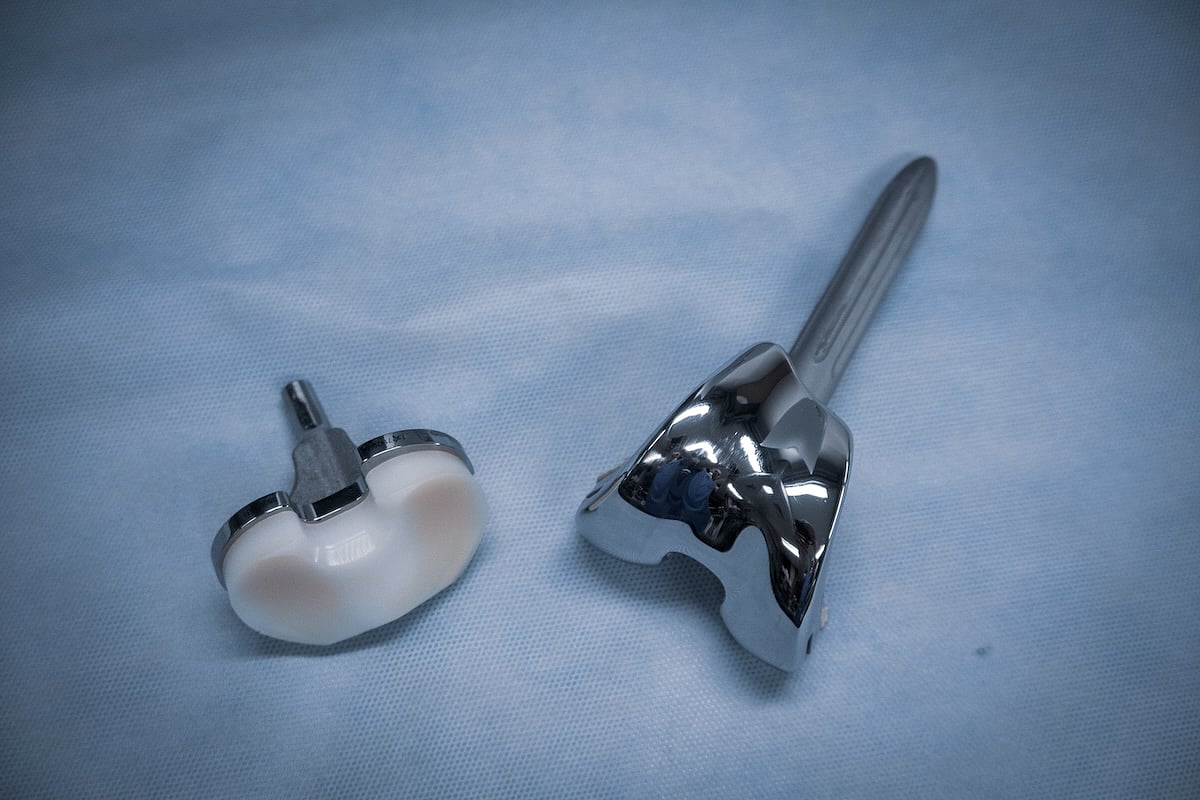
MONDAY, Feb. 24, 2025 (HealthDay news) — Even slight weight loss spurred on by cutting-edge GLP-1 drugs can help prevent replacement knees and hips from wearing out, a new study suggests.
People with new knees and hips are significantly less likely to need follow-up surgery to fix wear and tear on their artificial joint if they lose weight using Wegovy, Zepbound or other GLP-1 drugs, researchers reported in a new study published Feb. 21 in JAMA Network Open.
Patients who lost 2% to 10% of their initial weight had an overall 25% lower risk of follow-up surgery, and those who lost 10% or more had a 43% lower risk.
“A higher proportion of weight loss after initiating antiobesity medications within 1 year was associated with a lower risk of 5-year and 10-year revision among patients with obesity undergoing joint replacement,” concluded the research team led by Dr. Chao Zeng, an orthopedics specialist with Ziangya Hospital at Central South University in Changsha, China.
“These results suggest that antiobesity medication use, with relatively safe and sustainable weight loss, may be an effective strategy for improving implant survivorship of hip and knee replacement in the obese population,” researchers added.
In the U.S., about 900,000 knee replacement surgeries and 400,000 hip replacements occur each year, researchers said in background notes.
Knee replacements can be expected to function well for at least 15 to 20 years in up to 90% of patients, according to the Hospital for Special Surgery in New York City.
But eventually some patients — particularly those who got a replacement joint at a young age — will need follow-up surgery to replace plastic pads, clean bone surfaces and readjust the joint, the HSS says.
Studies have shown that obese patients are 2 to 3 times more likely to need such follow-up surgery, given their increased risk of complications and the stress their weight places on the new joint, researchers said.
The new study aimed to see if using GLP-1 drugs to lose weight might reduce stress on a new joint and, thus, help prolong its working life.
For the study, researchers analyzed records on nearly 3,700 patients in the U.K. who’d had a hip or knee replaced and had been prescribed a GLP-1 medication.
They specifically compared people who gained weight or kept their starting weight against those who lost small to moderate amounts of weight (2% to 10% of body weight) and those who lost a large amount, 10% or more.
Overall, the five-year risk of requiring follow-up surgery was 5.6% for those who gained weight or kept their starting weight, 4.4% for those who lost a small to moderate amount of weight, and 3.7% for those who lost a large amount, results show.
Looking at specific types of replacement joints, researchers found:
-
A 45% to 51% lower risk among knee replacement patients, based on how much weight they lost.
-
An 18% to 47% lower risk among hip replacement patients, based on weight loss.
These lower risks also remained consistent when researchers looked farther out to a 10-year time span.
“Our results provide evidence that 2% or more weight loss over 1 year after initiating antiobesity medications reduces the 5- and 10-year risk of revision for joint replacements,” researchers concluded. “If future studies confirm these findings, they could guide clinical practice and improve implant survivorship of joint replacements in the obese population.”
More information
The Hospital for Special Surgery has more about follow-up surgery for knee replacements.
SOURCE: JAMA Network Open, Feb. 21, 2025
Source: HealthDay
Copyright © 2026 HealthDay. All rights reserved.

Leave a Reply